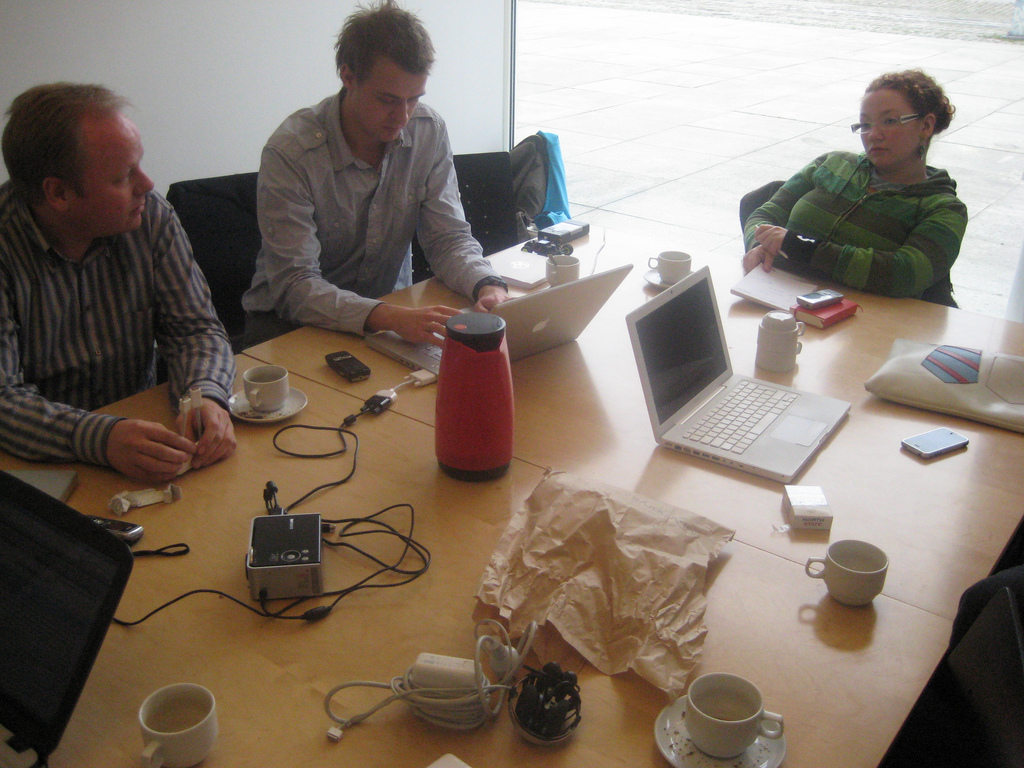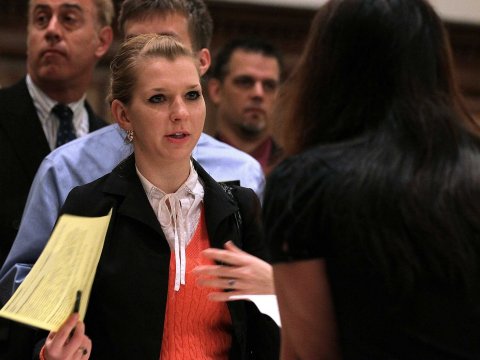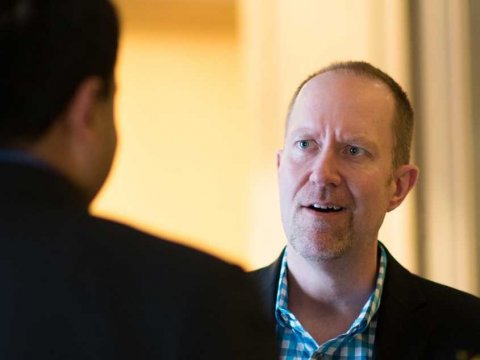Strategy: 7 Habits of Organized People…Organized People aren’t Born; They’re Built. Here are the Habits that you can Cultivate to be just like Them.
We all know that one friend or coworker who is super-organized. The person who is punctual, finishes projects with time to spare, and always knows exactly where to find what they need when they need it. Instead of hating that person, why not figure out how they do it?
“Organized people are not born; they’re built,” says John Trosko, founder ofOrganizingLA, a Los Angeles-based organizing firm. “The people who emerge as ‘organized’ use a variety of tools and methods to accomplish their goals and priorities in life.”
Their systems become habits, says Trosko. Here are seven things organized people do on a regular basis to stay on top of it all:
1. ORGANIZED PEOPLE SEEK OUT TOOLS
From kitchen timers to smartphone technology, organized people find tools that can help them make the most of their day, week, and year, says Trosko.
They use mobile phone apps with pop-up reminders, for example. They also use timers to help visualize the passage of time. And they break down tasks into smaller chunks and take short non-work-related breaks in between, which increases their overall productivity.
Like this Article ?? Share it ! First Sun Consulting, LLC- Outplacement/Executive Coaching Services, is Proud to sponsor/provide our ‘FSC Career Blog’ Article Below. Over 600 current articles like these are on our website in our FSC Career Blog (https://www.firstsun.com/fsc-career-blog/) with the most updated/current articles on the web for new management trends, employment updates along with career branding techniques .
You now can easily enjoy/follow Today our Award Winning Articles/Blogs with over 120K participates Worldwide in our various Social Media formats below:
FSC LinkedIn Network: Over 6K+ Members & Growing ! (76% Executive Level of VP & up), Voted #1 Most Viewed Articles/Blogs, Members/Participants Worldwide (Members in Every Continent Worldwide) : Simply Connect @ www.linkedin.com/in/frankfsc/en , Click the Connect button, Cut/Paste our E-Mail firstsun1991@gmail.com, Click Send Invitation. That Simple.
- Facebook: FSC LinkedIn Network,Connect/Friend us @ http://www.facebook.com/pages/First-Sun-Consulting-LLC-Outplacement-Services/213542315355343?sk=wall
- Google+: FSC LinkedIn Network, Over116K Viewed ! : Connect @ https://plus.google.com/115673713231115398101/posts?hl=en
- Twitter: Follow us @ firstsunllc
educate/collaborate/network
Look forward to your Participation !
continue of article:
2. ORGANIZED PEOPLE SET PRIORITIES
Instead of having an overwhelming number of commitments and little idea where to start, organized people have a clear sense of what’s important, says Lisa Zaslow, founder of Gotham Organizers, New York City-based professional organizers.
“They know what their goals are, what needs to be done when, and what can be put off,” she says. “They start the day with a clear plan of their ‘MITs’—their ‘most important things.’ And they review their plan throughout the day and adjust as necessary.”
3. ORGANIZED PEOPLE HAVE LESS STUFF
The golden rule of organization is to have as little as possible to organize, says productivity expert Hillary Rettig, author of The 7 Secrets of the Prolific.
“They figure out what the core of their professional and personal missions are and eliminate all else,” she says. “They will still have stuff to organize, but they’ve made the job doable.”
4. ORGANIZED PEOPLE CHOOSE SIMPLE SOLUTIONS
When organizing systems are complex, they often go unused. Trosko says organized people use simple tools that make an easy job of putting things away.
For example, baskets hold receipts that need to be filed, bills that need to be paid, and books that are waiting to be read. A hook by the door makes it convenient to hang up a coat. And bowls and trays near an entryway will keep keys and wallets in one place.
5. ORGANIZED PEOPLE PRACTICE MAINTENANCE
Organization requires continual upkeep, says Zaslow: “You don’t go to the gym, get in shape, then cancel your membership,” she says. “Being organized is the same.”
Organized people will take a few moments each day to put things back in their proper places. They might archive an email, for example, or put away papers.
“They don’t drop things in a random pile ‘just for now’—it’s always now,” says Zaslow. “The tiny amount of time it takes to do this is vastly less than the time it takes to look for something that wasn’t put away properly.”
6. ORGANIZED PEOPLE REGULARLY PURGE
Situations change and formerly useful things become unnecessary. Instead of letting clutter sneak up on them, Zaslow says organized people periodically purge. They clear out their files when the drawer starts to get full, for example, and they toss the notes for the project that was canceled.
Zaslow says she once had a client who would buy a new filing cabinet each time one got full: “By the time she called me to intervene, she had file cabinets in her home office, guest room, upstairs hall, den, and basement,” she says. “Needless to say, most of the information was out of date and irrelevant.”
7. ORGANIZED PEOPLE PROJECT THEMSELVES INTO THE FUTURE
Using a two-person mind-set—present self and future self—can help you stay organized, says Lorie Marrero, founder of the Clutter Diet, an online organizing program. She likes to think of her future self when she takes care of small tasks right away.
“If I walk through a room and see a mess, I will say, ‘I bet if I do those dishes now my future self will be so much happier later,” she says. “That motivates me to do those favors for my future self.”
Marrero says organized people also think into the future when they add activities to their calendars: “They ask: ‘What could I do before, during, or after this appointment to improve it?’” she says. If they need to prepare for it, bring something to it, or follow up after it, they schedule it now and put it on their task list.
Fastcompany.com | February 2, 2015 | STEPHANIE VOZZA















